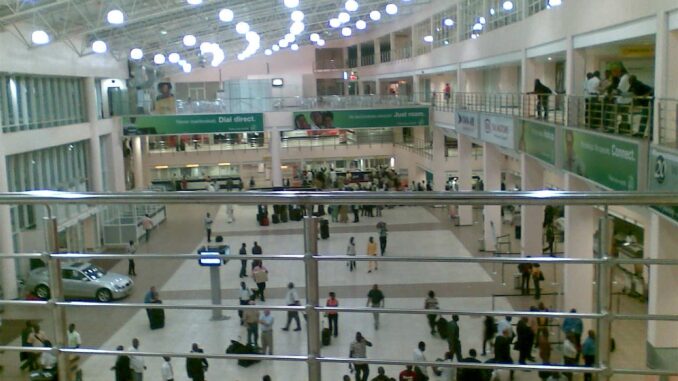
Airline operators have raised concerns over the feasibility of Nigerian airports adopting the daily slot system for domestic scheduled operations.
Though the option aims to ward off flight delays and reckless cancellations in flight operations, operators said the airport infrastructure was not yet primed for quick facilitation that the slot system requires.
More so, they queried the timing of the slot option in the midst of pandemic disruption and growing unpopularity of the system in Europe, where carriers currently fly near empty just to keep up with allotted slots.
A landing slot, takeoff slot, or airport slot is a permission granted by the owner of an airport designated as Level 3 (Coordinated Airport), which allows the grantee to schedule a landing or departure at that airport during a specific time period. Slots are used when the airport is constrained, either by the runway throughput or by the available parking space.
An advocate of the daily slot system, Group Capt. John Ojikutu (rtd), reasoned that with the pressure on major airports like Lagos and attendant passenger traffic, Nigerian airports might deploy the strict schedule system, where operators depart and arrive as and when due, or pay fines for missing slots.
Ojikutu said any airline that fails to operate within its allocated time must be surcharged.
“That will reduce unnecessary delays attributed as ‘due to technical reasons or operational reasons’ that cannot be proven to passengers, but which now have been attributed to capacity of the terminals or capability of the terminal allied services.
“There has been an increase in the number of airlines and, therefore, the number of aircraft but the surge in the passenger number may likely not go beyond the Christmas season and possibly end of January. However, it is necessary to keep a programme for slots allocation handy, should the situation continue or for future occasions.”
Operators, however, said the system has not been foolproof, especially during disruptions. A Chief Operating Officer (COO) of one of the local carriers reiterated that flight delays were often due to inadequate infrastructure at the airports and weather vicissitude than by the operating equipment and crew.
“I personally considered the slot option to be unrealistic where the airports have not been upgraded for seamless operations. Here, we are putting the cart before the horse to be talking about slots now.
“Slot is not bad in itself; it is an international standard. But it is not for a system where there are too many limitations, disruptions and airports with too many infrastructure gaps,” he said.
In Europe where the system is practiced, operating airlines have been facing difficulties operating the slot system in the midst of pandemic disruption.
The highly contagious Omicron variant of COVID-19 has put many off flying, and because of it, getting people and goods from point A to point B has become an afterthought for thousands of flights.
It has created strange bedfellows, with environmentalists and major airlines united to cut down on empty or near-empty flights by pressuring the European Union — a pledged global leader in combating climate change — to tweak the rules on securing airport slots.
German giant, Lufthansa, said it would have to fly an additional 18,000 “unnecessary” flights through the winter to hold on to landing slots. Even if the holidays brought a big increase in passengers — marked by thousands of flight cancellations that left travellers stranded — the rest of the winter period could be slow as Omicron surges worldwide.
In the U.S., the Federal Aviation Administration has waived similar minimum slot-use rules until March 26, 2022 citing the pandemic. Slots are limited at only a handful of U.S. airports, including Kennedy and LaGuardia in New York and Reagan Washington National.
Meanwhile, travellers in the U.S. continue to find themselves stranded at airports as bad weather and Omicron ring in the new year with thousands more flight delays and cancellations.
Director General of the International Air Transport Association (IATA), Wille Walsh, said that it was incumbent on the government to deploy policies that support than harm airlines facing pandemic interruptions.
Walsh said: “We hope that as soon as possible, governments will restore travel rules that allow for the industry to return to growth again. Until demand growth stabilises, essential slot rules should be restored gradually and continue to maintain provisions for reasonable exceptions when conditions change – such as a rapid clamp down on travel with the emergence of a new variant like Omicron. Only with sustainable and predictable global travel rules can connectivity recover and remove the need for slot alleviation.
“The airport slots system has been the backbone of building global air connectivity, which before COVID-19 was serving 4.5 billion passengers across a route network that over 20 years had doubled, while fares had halved in price. This success can be rebuilt if regulators treat the system with care,” Walsh said.
END

Be the first to comment